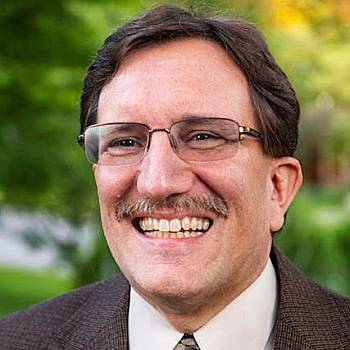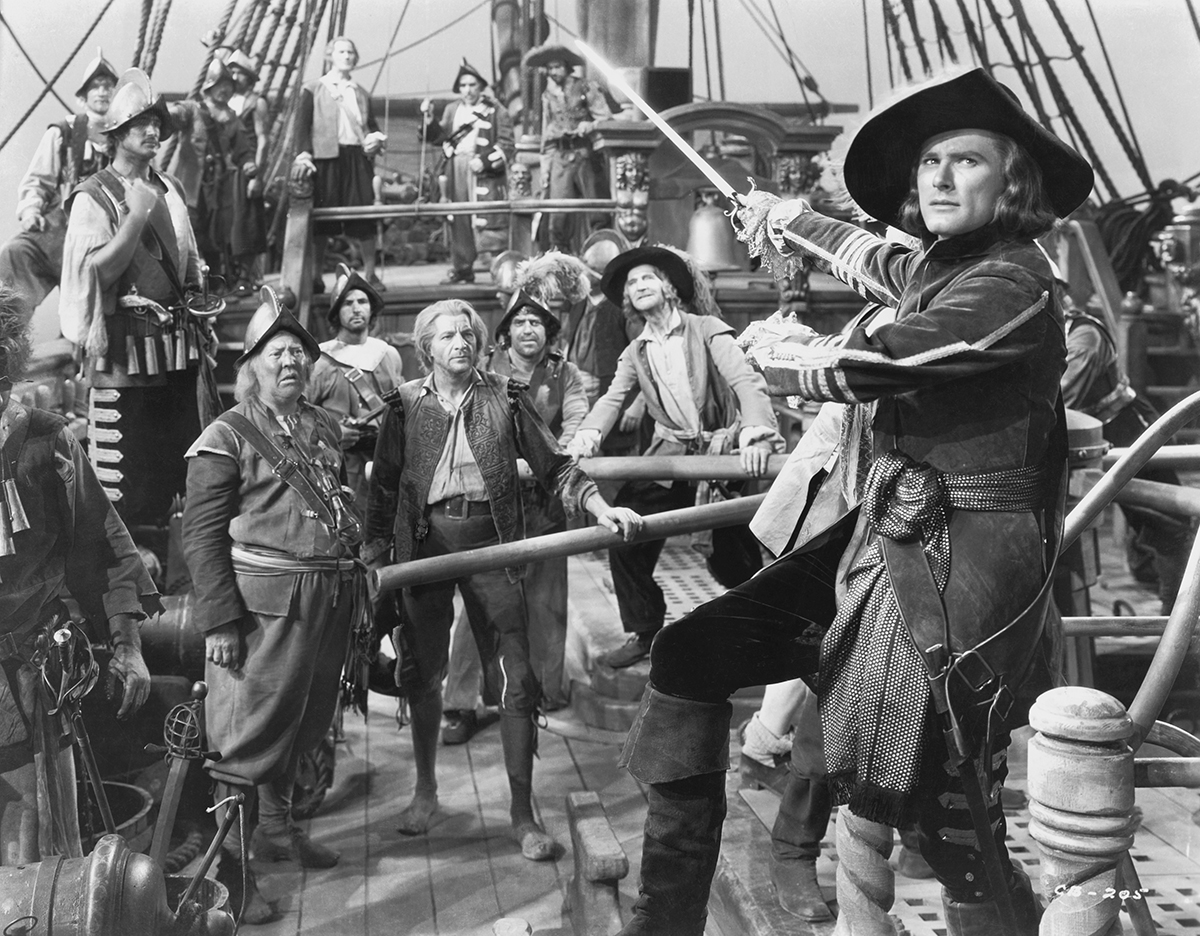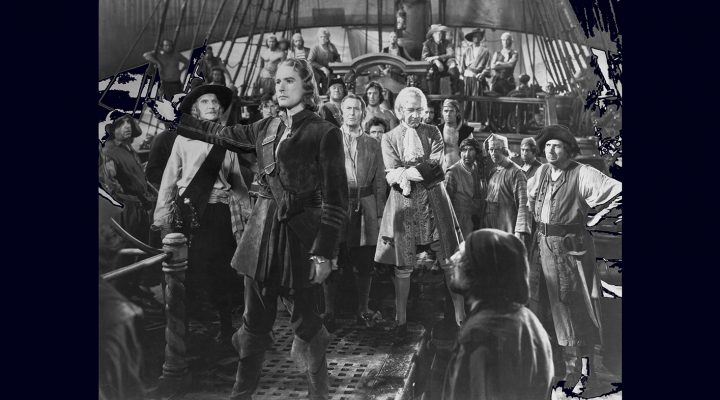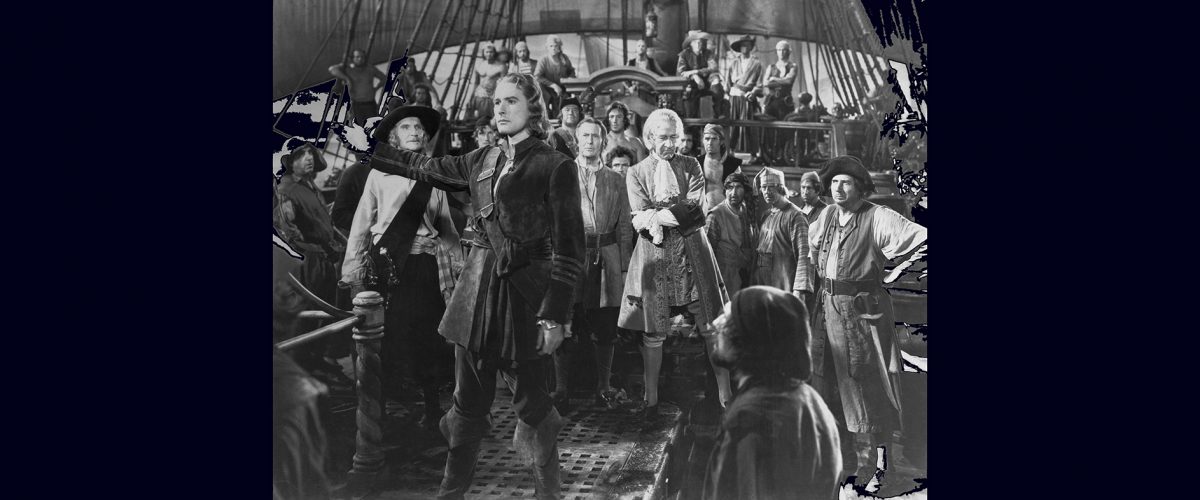In light of recent Baptist news, I’ve been doing some reflection about how Baptists are really a lot like pirates, in a good way.
(Disclaimer: I’m talking about the pirates of Treasure Island and Errol Flynn and Pirates of the Caribbean fame, not modern-day pirates. Even so, there is a dark side to piracy that goes beyond the worst church business meeting. Like any analogy, this one has its limits.)
The first thing Baptists and pirates have in common is that we both bloomed in the mid-1600s to mid-1700s. During the Reformation, instead of one Catholic Church there were German Lutherans, French Calvinists, Scottish Presbyterians, English Anglicans and Methodists — all of which decided they were definitely not Roman Catholic but were still very structured.

Paul Raybon
You could say each of these new churches was kind of like a national navy.
Although each congregation might seem like a ship that just floats along in its own part of the ocean, its captain reports to a commander above him, who reports to the squadron, who reports to the fleet, who reports to the admiralty, who makes up all the rules for how to be a ship and sends out orders on where to go and what to do. Even though some church “navies” were run by groups of men instead of a single person, the group at the top had the final say. And if you disobeyed you could be punished, even killed.
But then there were folks at the fringes: Congregationalists, Mennonites, Anabaptists and eventually Baptists. These are all our ancestral church cousins. They all said, “We don’t see any of that hierarchy or structure in the Bible. We just see groups of baptized believers coming together to form churches as they see fit. So we don’t need or want the official approval of any government to be a church; we just want the freedom to do it our own way.”
These ideas really took off when early Baptists came to the New World. Even though most of the colonies had official churches, folks along the colonial frontier liked this way of doing church. They were even willing to go to jail instead of paying colonial preaching taxes.
So for some early Baptists, “dinner on the grounds” meant taking a picnic to the courthouse square and listening to your pastor preach from his jailhouse window. And since these frontier Baptists made their own decisions, they didn’t have to wait for someone at the home office to send a preacher or approve a new church. They chose someone from their community who could read the Bible and speak with conviction, picked a place and a time to meet, and that was it: they were a Baptist church.
“For some early Baptists, ‘dinner on the grounds’ meant taking a picnic to the courthouse square and listening to your pastor preach from his jailhouse window.”
Meanwhile, at about the same time in the New World, there were other folks living at the fringes. Sailors who said, “We’re tired of being in the navy with all its rules, regulations and injustices, but we like sailing, and we like fighting, and we really like getting treasure. So we’re going to freelance. If there is a king or queen willing to pay us to do this work, that’s OK, but otherwise we’ll go our own way and do our own thing. Yo ho, yo ho, it’s a pirate’s life for me.”
Baptists and pirates came out of this same era of turmoil and change and shared the same desire for freedom. What else do we have in common?

Errol Flynn as doctor turned pirate Peter Blood in the 1935 adventure film “Captain Blood.” (Photo by ohn Springer Collection/CORBIS/Corbis via Getty Images)
Both are voluntary. You had to choose to be a pirate. You couldn’t just grow up and be a pirate because your parents were pirates. You couldn’t be forced to be a pirate. You had to sign on to join a crew.
Baptists have to choose to be a member of the church. We have to choose to follow Christ. We have to choose to be baptized. It’s not a choice our parents or our families can make for us. No one can force you to be Baptist.
Both are democratic. Although pirate captains were absolutely in charge during a battle, there was a strong tradition that if a captain failed to lead the ship successfully, the crew could vote him out for a new captain. And the captain had one vote like all the other crew when making important decisions.
Same with Baptists. The congregation chooses their leadership and asks those leaders to lead. But if the church doesn’t like the direction that leadership is going, the church can change leaders.
Both share reward and responsibility. When things went well and the pirates had plenty of treasure, everybody got their share. When times were hard, everybody did without.
Same with Baptist churches. I like to say there is no “they” in a Baptist church, at least unless you choose not to show up and do your part. We all share in the responsibility for our decisions and the reward for good ministry.
“There is no ‘they’ in a Baptist church, at least unless you choose not to show up and do your part.”
Both are autonomous. Although ships and captains sometimes would choose to work together, they were fiercely independent and would refuse to be under the authority of other pirates or governments for any extended period of time.
Same with Baptist churches. We choose which Baptist and community organizations we will identify and partner with in order to accomplish our mission. Those organizations do not have control over our congregational life. And when we chafe under too much control, we can choose to end those partnerships.
One other tradition we share from those early years: Pirates were inclusive. They would not know that word, but there were female pirate captains like Anne Bonny, Mary Read and Rachel Wall. There also were pirates and captains of every color and nation working together for common goals.
Early Baptists were better at this than their descendants. Martha Stearns Marshall (sister of Shubal Stearns and wife of Daniel Marshall, both colonial preachers and founders of Baptist churches in North Carolina and Georgia) often spoke in churches and was considered by some to be the better preacher. In the 1700s, African Americans often were received as equal members of congregations along with white people and were ordained to preach. Yes, early Baptists lived and worshiped on the fringe.
Of course, these pirate traditions were all a part of the Pirate Code, the rules by which pirates lived and worked. But, as the characters in the Pirates of the Caribbean learned, sometimes, “The Pirate Code — they be more like guidelines.”
The same happens with Baptist churches, especially unhealthy ones. Sometimes all the principles and bylaws go out the window in struggles for power and control.
The reality of pirate life and church life can get really ugly, because if it’s all about being able to do whatever you want, if it’s about keeping or gaining power and control, no matter what, people will make poor choices. Galatians 5:1 reads: “For freedom Christ has set us free; stand firm therefore and do not submit again to a yoke of slavery.”
Paul is talking about an argument within the early church whether or not we have to follow the Jewish laws and traditions in order to be Christian. Paul’s answer is not just “no,” but “hell no!”
“We want somebody to tell us what to do, because that’s safer.”
Christ set us free, so don’t go looking for traditions and laws to be your new master. But understand, we humans do have that tendency. Freedom is too scary. We want somebody to tell us what to do, because that’s safer. We want somebody to tell us what to believe, because that’s easier. We want somebody to tell us who to accept, because that’s reassuring.
But Paul says, “No way! Be free!” Maybe he would even say, “Be a pirate!” But not just any old pirate. Be a pirate that follows the code of love:
For you were called to freedom, brothers and sisters, only do not use your freedom as an opportunity for self-indulgence, but through love become enslaved to one another. For the whole law is summed up in a single commandment, “You shall love your neighbor as yourself.”
The pirates wasted their freedom chasing treasure. It was, in the end, all about getting what they wanted. And they got what they deserved.
Our Baptist ancestors recovered the idea of church freedom through their reading of Scripture and created a model of church life capable of great freedom, flexibility and growth. But eventually many became more concerned about preserving a way of life that sustained slavery, discrimination and hatred.
But that’s not God’s intention. God gave us this great freedom, the freedom to choose to love, because God knows when we choose to love our neighbors, there is great power, there is great attraction.
People wonder:
How in the world do those crazy Christians do that?
How is it that they can love people with whom they have nothing in common?
How is it that they can love people who hate them?
How is it that they can love people who try to destroy them?
How is it that they can love me?
Whatever makes that possible, I want!
That’s the life for me!
“Yo ho, yo ho, that’s the life for me!”
Paul Raybon serves as co-pastor with Melissa Hughes at Hominy Baptist Church in Candler, N.C. He also is a leadership and congregational coach through Christian Equipping Coach and Barnabas Partnership.


